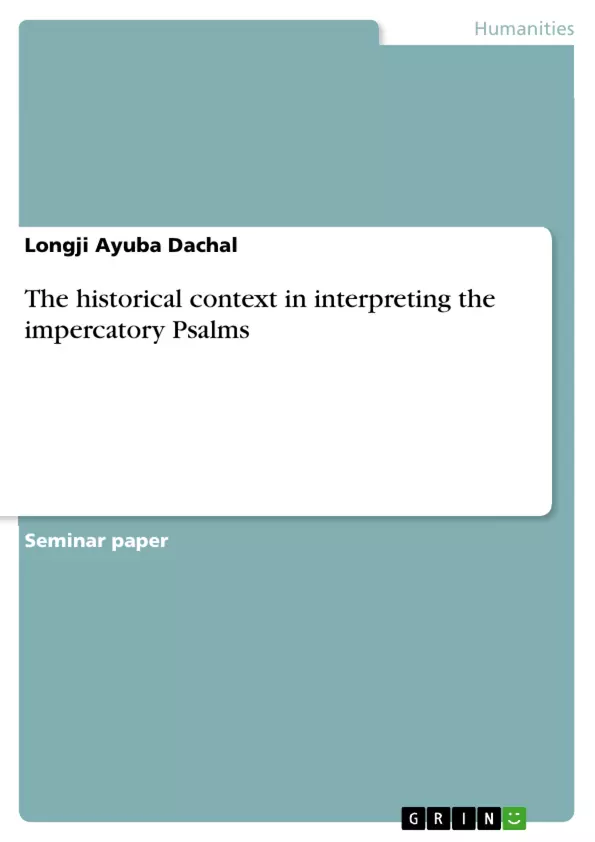The historical context of each Bible event is relevant to the understanding, interpretation and application of the biblical text. This is because the Bible was written in a context. Neglecting the historical context from which the Bible was written will lead to the misapplication of the biblical message.
The book of Psalms was composed from different contexts. To this effect, the historical context of the Psalms will be of immense help in understanding the message of the Psalms especially the imprecatory Psalms.
Table of Contents
- Introduction
- Historical context
- The Psalms
- The Imprecatory Psalms
- Psalm 137
- Application for the African church and society
- Conclusion
Objectives and Key Themes
This term paper aims to examine the role of historical context in interpreting the imprecatory Psalms, a collection of prayers and hymns within the Hebrew Scriptures. By analyzing the historical background, cultural context, and social setting of these Psalms, the paper seeks to understand their intended meaning and relevance for contemporary audiences, particularly within the African church and society.
- The importance of historical context in biblical interpretation
- The nature and purpose of the imprecatory Psalms
- The application of the Psalms to contemporary issues in the African context
- The ongoing relevance and significance of the Psalms for believers today
Chapter Summaries
The introduction provides an overview of the Psalms, highlighting their enduring significance and the potential for misinterpretation due to neglecting historical context. The second chapter dives deep into the historical context of the Psalms, emphasizing the importance of considering the time, culture, and social setting of their composition. It highlights the need to understand the original meaning and intention of the authors and readers. The third chapter delves into the nature of the Psalms, exploring their poetic expressions and their role in reflecting the diverse responses of human faith. It emphasizes the Psalms as prayers and hymns intended to be set to music and prayed in worship, offering a structure for expressing praise, thanks, and grief to God. This chapter also touches on the different collections within the Psalms, including the Davidic Psalms and the songs of ascent.
Keywords
The main keywords and focus topics of this text include historical context, biblical interpretation, imprecatory Psalms, Hebrew Scriptures, African church, social setting, cultural context, prayer, hymn, worship, and relevance. The text explores the importance of considering the historical context of the Psalms, particularly for interpreting the imprecatory Psalms, and examines their application to contemporary issues within the African church and society.
- Arbeit zitieren
- Longji Ayuba Dachal (Autor:in), 2011, The historical context in interpreting the impercatory Psalms, München, GRIN Verlag, https://www.grin.com/document/346649



